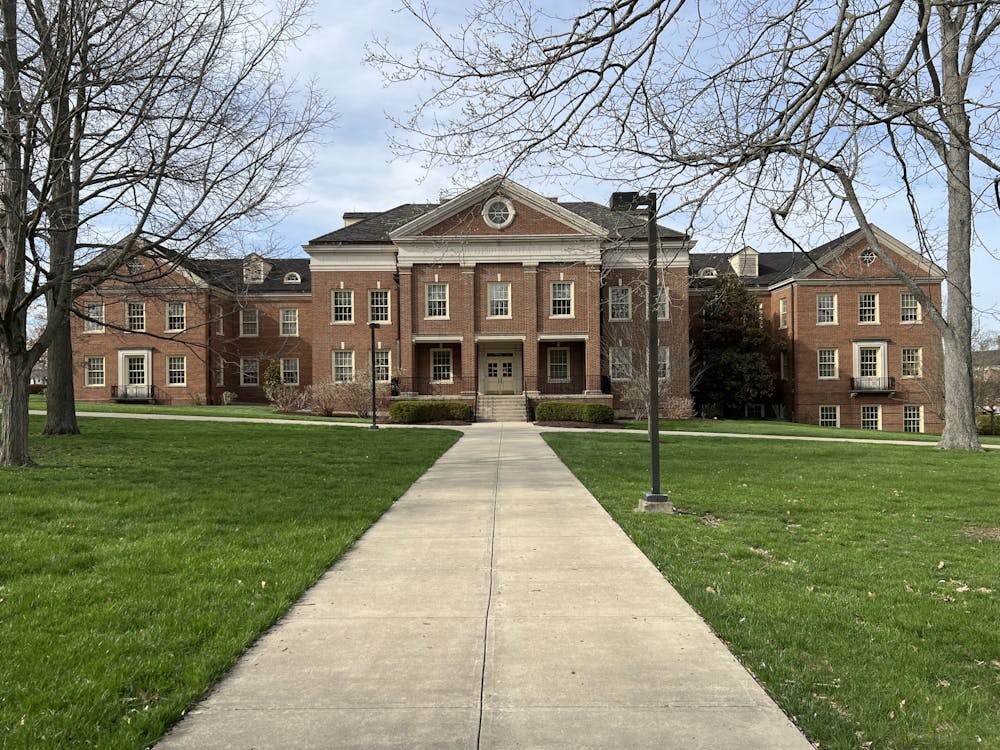The following reflect the majority opinion of the editorial board.
Secretary of Education Betsy DeVos introduced new interim guidelines Friday for how universities deal with sexual assault investigations.
The biggest change was removing the Obama-era mandate that universities use the "preponderance of evidence" standard when deciding Title IX hearings.
"This [preponderance of evidence] standard essentially asks, 'Is it more likely than not that the Policy Prohibiting Harassment and Discrimination was violated?'" reads Miami University's Title IX protocols.
With the new DeVos guidelines, universities can continue to use the preponderance of evidence standard or, now, they can switch to a "clear and convincing" standard, which places the standard of evidence somewhere between a preponderance of the evidence and the stringency of "beyond a reasonable doubt."
Moving to the "clear and convincing" standard would make it more difficult for investigators to prove the responsibility of sexual assault within a university setting and, critically, would make it more difficult for victims to find respite in Title IX protections.
"For now, our established judicial processes will remain in place," wrote Claire Wagner, university communications director, in an email.
For now.
Wagner also said that Miami will study the new interim regulations and that it "remains committed to complying with Title IX and its assurance of fair and equal educational opportunities."
Miami made the right decision in sticking to their established "preponderance" standard. We sincerely hope the university holds this policy into the future.
The very nature of sexual assault is what makes it hard to prosecute in the first place. Often, incidents are clouded with conflicting accounts and little eyewitness testimony to the most important aspects of the case. Therefore, a preponderance of the evidence is the only way for any meaningful justice to ever be served to survivors.
Additionally, many sexual assault survivors already find it hard to come forward after they are assaulted. Increasing the standard of proof that they must demonstrate to make their case would only make the challenge of coming forward more difficult.
Enjoy what you're reading?
Signup for our newsletter
The Obama-era guidelines were controversial, and a preponderance of the evidence is the lowest standard of proof in our legal system. However, given how challenging it can be to prove sexual assault and how easy it is for victims to feel intimidated by the more costly, more stringent criminal justice process, the need for this standard in university Title IX hearings remains.
Colleges cannot convict students of crimes, but they are obligated, under Title IX, to address sexual violence. Criminal standards of proof make it more difficult for colleges to comply with Title IX.
According to the Chronicle of Higher Education's Title IX tracker, there are three open Title IX complaints filed with the U.S. Department of Education's Office for Civil Rights over the university's handling of sexual assault cases.
There exist cases where students fabricate claims against other students in this realm. These specific cases are not in any way representative of the vast majority of sexual assault survivors who come forward and seek justice. In short, this standard of justice benefits the truth in the overwhelming number of cases.
It is imperative that Miami continues to focus on prevention in addition to the improvement of its process of student justice. The university should continue to pour efforts into educating all students about sexual assault and how to prevent it.
The school is not a court of law; guidelines such as the Obama-era ones exist not to punish the accused, but to protect victims. Keeping this standard of evidence is exactly what the school needs to do to continue providing that protection.




